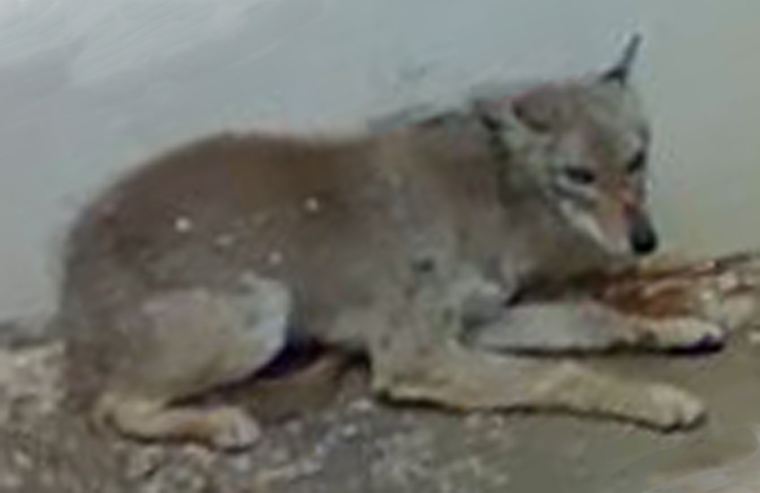-
info@aaanimalcontrol.com
Call us for help in your town
Humane Wildlife Education
Are coyotes actually a threat? Are they dangerous to cats, dogs, or other pets?
Need coyote removal in your hometown? We service over 500 USA locations! Click here to hire us in your town and check prices - updated for year 2020.
Coyotes are vicious creatures, scavengers, just like foxes and raccoons, and they look a bit like dogs, only much bigger. Their paw prints are often mistaken for dogs prints, and they do look very similar when you compare them side by side. For the record, coyote prints are generally more elongated than dog prints are.

Smaller mammals are at a higher risk of being eaten by a passing coyote, and these include rabbits, voles, mice and rats, but this is an animal that can stand 66 cm high, and weight in at around 15 to 20 kg in weight. They are much bigger than most cats and dogs, and even medium-sized pups will easily be taken down. Your pets will not come off well when fighting against a coyote.
At night, if you hear coyotes you should move your pets inside. Even if you don't hear coyotes, you should still move your pets inside. Most scavengers come out at night, and some of these scavengers can be much larger and, therefore, a much bigger threat to your domesticated pets than you'd think.
Coyotes are most dangerous when they are being fed by humans. They are not as fearful of them as they once were, and when they learn that they can get food, they are generally a bit braver. They WILL fight your animals for food, and they’ll also be much more vicious during maternity seasons, when the mothers have their young to care for. Not only do they need more food to feed her hungry pups, but she also needs to keep them safe. As far as a coyote mother is concerned, any animal that comes close is not only a potential threat, but also a potential meal.
You should not let your pet go wandering off the lead in places that you don't know that well, and this is even more so the case if you can't be sure that wildlife, such as coyotes, aren't hanging around. Breeding seasons range from the end of winter to just after spring has hit, and the animals will, again, be much more aggressive during this time. Males will want to defend their territory and win over the most females.
Coyotes are incredibly dangerous, to people as well as domesticated animals, and that’s before you look into the potential for the spread of disease.
Close to half of all coyotes tested in the state of Illinois were tested positive for heart worm. Mange is another common complaint, which can be passed on to cats and dogs, and rabies is another very deadly disease you will need to protect your household from. Canine parvovirus can be passed on to your pets, as can canine distemper, and on top of that, there’s roundworm, infectious canine hepatitis, tularemia, and hydatid disease, a form of tapeworm that humans can also contract. The latter is a deadly disease that can lie dormant in the body for decades, and when it does rear up, prices to be life-threatening in most cases.
For more information, you may want to click on one of these guides that I wrote:
How To Guide: Who should I hire? - What questions to ask, to look for, who NOT to hire.
How To Guide: do it yourself! - Advice on saving money by doing wildlife removal yourself.
Guide: How much does wildlife removal cost? - Analysis of wildlife control prices.
animals in the attic
noises in the attic


















